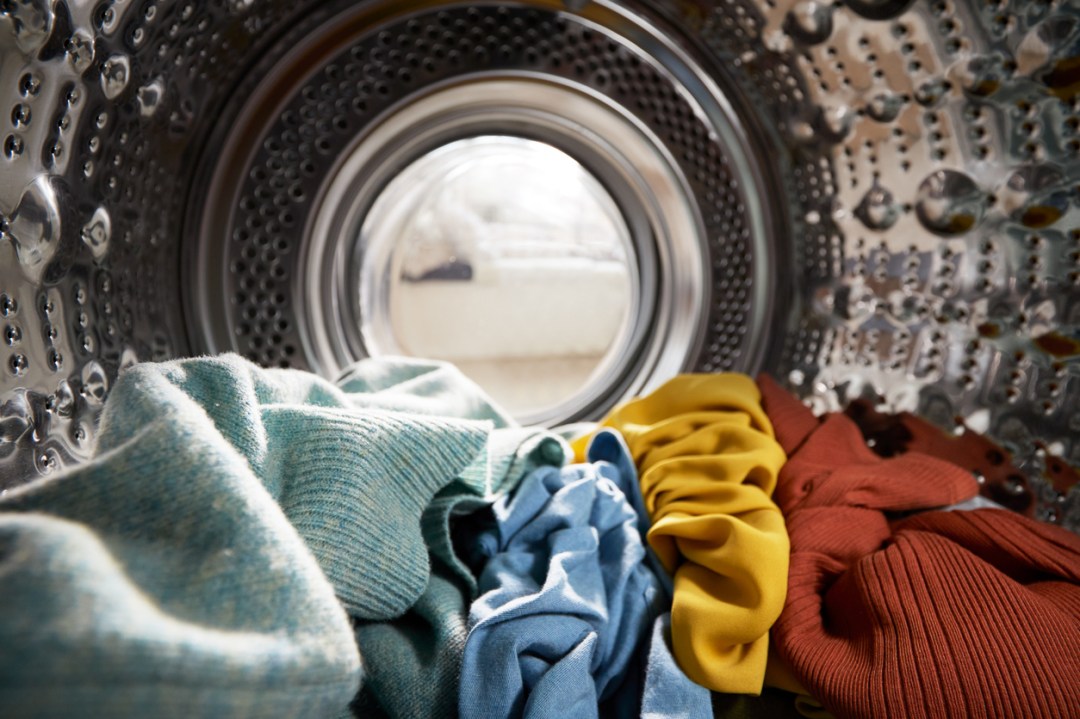Two days before leaving this country for Italy – where, defeated by southern British house prices, I planned to fight for a long-term visa and buy a home – I finally found the exact flat I’d been dreaming of, here in the UK. True, it wasn’t in East Anglia, where I grew up and most of my family still lives, but Shropshire, a county which intrigued me and which emerged over time as my second choice. Green, landlocked, with endless castles, hills and valleys, Shropshire is about as remote from the capital as you can get. It has Ludlow and Shrewsbury, medieval towns with rivers, courtyards, timbered buildings and a pleasing Shakespearean ring to their names. Nearby is Wales which, since two epic holidays in my youth, has been a kind of Holy Land for me. What’s not to embrace?
Every time I told them of this universal foreign custom, the line went silent
Finding this place felt fated. If I hadn’t, at my wits’ end, typed ‘Shropshire’ into Rightmove one night, if my cousin hadn’t been at my late mother’s house with her car that day and a sense of adventure, if the local estate agents had not returned my call, it might never have happened. But within minutes of walking into this flat, bang in the centre of a market town on the Shropshire Union Canal, I realised this was just what I’d been wanting: a maisonette in a conservation area, with beams, exposed brickwork and a large attic room with skylights. I put in an offer the next morning and, a couple of days later, it was accepted.
But I still had nowhere to live for the next two or three months and my flight was already booked to Italy. The cats’ travelling documents had been secured (a fiddly, costly process) and the rental paid on a Puglian apartment. So, one February morning, trundling a pet carrier, I flew out with ITA airways, hoping the English flat purchase would complete before my 90-day limit expired. And, I reasoned, if I fell in love with (or even in) Conversano, the southern town I was staying in, I could always let the Shropshire flat and fight for residence as planned.
Nothing like this happened, and I was at least spared the terrifying tangle with Italian bureaucracy which a move there would have entailed. At the end of my 12 weeks – a leisurely limbo of religious festivals, chiming bells, olive groves, morning focaccia and the sight of Fiat Pandas and Cinquecentos on every street corner – what I had to face instead was getting the cats back to England again, something which, since our departure from the EU and the pet-passport system, is almost impossible by air. Instead, a complex overland trip is required (one bus, three trains, a flight from Rome to Paris, and a taxi under the channel) with numerous stop-offs to feed and rest your livestock. It’s tricky to get right and burns the pocket – a taxi from Calais to Folkestone costs the better part of £500 – but I’ve done it before and there were few surprises. I got home.
A month has gone by now since then, my first month in Shropshire, and I have no regrets. The small town’s full of character, the locals pleasant and courteous, the flat everything I hoped it would be. Nothing in fact, outside family living there, has made me very nostalgic for life abroad. Nothing, that is, apart from the Great Washing Machine Saga of 2024.
In the town I’ve moved to, there’s no question you need a washing machine. The nearest laundrette’s 15 miles away and only really reachable by car. But where do you put this appliance? My flat has a large bathroom and a small kitchen, thus making it obvious to me from the outset the washing machine should go into the former room – where, indeed, it would automatically go in any of the foreign countries I’ve lived in.
But suggest installing a washing machine in the bathroom to your average British plumber, and they’ll react as if you’ve just tried to sell them a pair of human kidneys. They lecture you about health and safety rules and ask them whether your bathroom is big enough to station the washing machine at regulation length from any source of splashing water (a distance so vast you want to point out that it’s a Victorian cottage maisonette you live in, not the O2 Arena). They also leave you feeling vaguely disreputable and underhand for even asking. In every foreign country I’ve lived, I protested, the washing machine goes into the bathroom as standard – abroad, they’d no sooner wash their clothes in the kitchen than they’d use a Hermès scarf to dry the dishes. But every time I told them of this universal foreign custom, the line went silent and I could feel the plumber thinking, ‘Thank God for Brexit. Thank God we got out in time.’
I also wanted to point out that if a washing machine reacts so histrionically to contact with water, it has probably chosen the wrong career for itself, and that as yet – to my knowledge – no headline has appeared in the world’s press announcing ‘Zanussi and Hotpoint taken to the cleaners over washroom electrocution epidemic’, but they would not listen. I did find a plumber willing to put the appliance where I wanted, but the dealings were so hush-hush and shady that it was like arranging a backstreet abortion in the 1940s. And by then all the Naysaying Plumbers of Shropshire (which I’m sure is the title of a Jacobean drama) had got to me. If fire or pestilence swept through my flat or somebody filched my Roberts CD-Radio, would the insurance company simply point to the illicit junction in the bathroom pipes and say ‘Suck it up, loser. No can do.’ Meanwhile, there was this little alcove in my kitchen, an alcove with perfect space for the bins and an elaborate arrangement of shelves which would house the microwave and grill and halogen oven, and return the odd work surface to me. This dream of plenty would now have to be sacrificed to the whims of some pen-pushing Health and Safety droid.
There, in the kitchen alcove, the washing machine now stands. There was no plumbing for it and we’ve had to run the elephant’s trunk of a waste pipe straight over the kitchen floor and through a cupboard door (which now won’t close) to the sink. I may trip over it but at least will be able to boil-wash the bloodstains out of my trousers. It may be ‘good to touch the green, green grass of home,’ as Tom Jones once crooned to us. But the great chanteur of the valleys presumably got his washing done by someone else, and I can’t help thinking what the response to my request in Italy would have been: a nod, a smile and a quick ‘Va bene.’








Comments